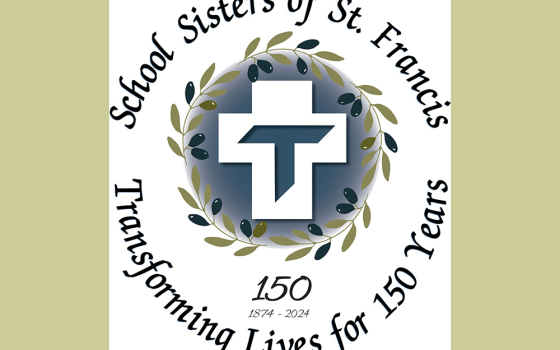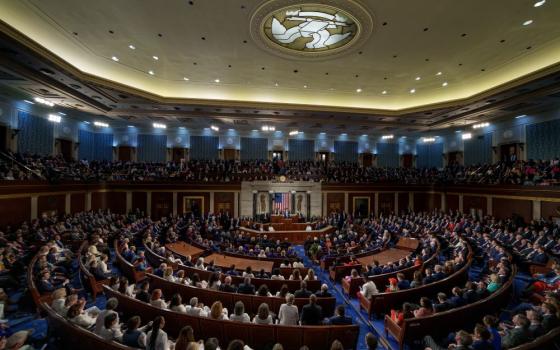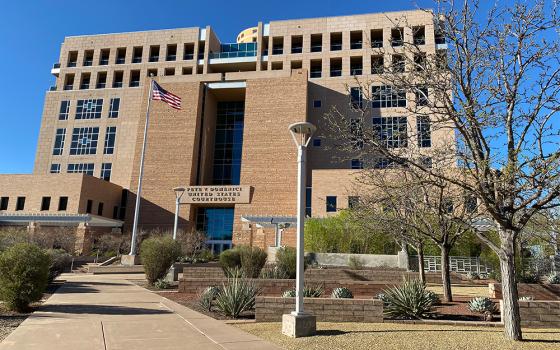For two weeks now, we have been celebrating the season of Advent, that time of waiting, of expectation, for the coming of someone. As this expectation builds up, our anticipation grows and we hope that maybe during the next two weeks, it will even intensify our prayer life more so that we have a deeper awareness that something extraordinary is coming. We know that the coming that we're talking about is the coming of God into our midst.
|
The Gospel lesson is a way, through the disciple John, of helping us to understand the extraordinary event that is about to unfold in human history with the coming of God as one of us. John describes this One who is to come as the light. We begin our part of the Gospel today with John, the disciple, the writer of the Gospel, describing John the Baptist as a witness to testify to the light. John proclaims, "I am not the light. I am only the witness to testify, to give witness to this light."
This light will come into this world to change everything and enable us to know the way of God, enable us to see where we are to go if we want to fulfill the promise of the fullness of God's reign. This light is coming into our midst and the light is someone so extraordinary that John, who is known in our own tradition as the greatest of the prophets, says in effect, "I am nothing in the presence of this one who is to come. I'm not worthy to untie the thong of His sandal, to kneel down and put on His sandals or take them off."
"I am nothing compared to what is happening, who is to come." Thomas Merton, the anniversary of whose death we remembered yesterday, Dec. 10, is a well-known spiritual writer, a monk who entered the Abbey of Gethsemani in Kentucky in the 1940s, and then produced an extraordinary number of spiritual writings, including his autobiography. In one of his writings, he tried to get across to us how everything changes with the coming of Jesus.
He said, "We do not understand that this business about the crib is the real revolution that once and for all turned everything upside-down so that nothing has ever been, or can ever be, the same again. With the coming of Jesus, everything changes." Now if we listen deeply to our first lesson today, we will begin to understand how things are changed with the coming of Jesus. Our first lesson was from the prophet Isaiah, the prophet writing at the time when the Chosen People were exiled and in terrible suffering.
Then One is to come and deliver them from this exile. Isaiah talks about this One. "The spirit of God is upon me because God has anointed me. God has sent me to bring good news to the poor, to give the blind new sight, to heal the brokenhearted, to set the downtrodden free and proclaim God's year of jubilee." Jubilee year was every 50th year in the Hebrew tradition when everything is changed. Wealth is redistributed, debts are forgiven and everyone has a chance to start over.
It's a Jubilee time when God makes it possible for every person to have a full human life. Isaiah proclaimed that message hundreds of years before Jesus, but it's important for us to realize, when we go to the Gospel of St. Luke, that Jesus, after His time in the desert, when He has spent six weeks in prayer and fasting, putting Himself in touch with God and heard God's call to Him, Jesus comes from the desert, goes to the synagogue in Galilee and Jesus is invited to read. He unrolls the scroll to this passage and he proclaims it. I'd like to try and imagine myself in that synagogue, hearing Jesus say those words with a determination, and I would think with a sense of joy and great hope.
The spirit of God is upon me. God sent me to bring good news to the poor, to show this preferential option for the poor, to go to the poor first of all, to heal the brokenhearted, to reach out to those who are suffering in any way, to give the blind new sight, and enable people to seen not only physically but with their inner sight, to set the downtrodden free, to make justice happen, to unbind the thong of the yoke of injustice, to make a world where everyone shares what God has given for all and to proclaim God's year of Jubilee.
The reign of God is at hand, the time when everything will be different. Everyone will enjoy the fullness of human life. As I say, I try to imagine sitting there and hearing Him. Then as He finished the reading, rolled up the scroll, gave it back to the leader of the synagogue, Jesus sits down and Luke says all eyes are fixed on Him. You can sense the profound silence. What will He say? Jesus says, "This day this Scripture passage is fulfilled even as you listen."
That's what it means for the Son of God to come into our world, that everything will be turned upside-down, as Thomas Merton says. It's a revolution. Everything changes if we hear Jesus saying this, "This day this Scripture passage is fulfilled. This is My mission. I am here to make this happen and I'm calling disciples who will carry on My work to make this happen." That's what we're looking forward to as we celebrate Christmas in two weeks, as we look forward to the fullness of God's reign at the end of time, as we listen in our own hearts for God to come into our own hearts, speak to us, guide us, give us the light we need to follow Jesus.
As I celebrate this Eucharist and proclaim this message in El Salvador, I can't help but think of Oscar Romero, that great archbishop. Everywhere you go in this country, his picture is everywhere. It's been 30-some years since he was shot to death, but the people are aware of him. It's a fulfillment of what he said, "Even if they kill me, I will rise again in the Salvadoran people." He's here and he was shot to death because he was proclaiming that message of Jesus.
Too many have too little. Too few have too much. It's unjust. Things have to change. There is too much violence. We must end the violence. He pleaded with the army, the soldiers, the young kids who were drawn into that army many times by force. "Drop your weapons. Leave. Do not kill your own brothers and sisters." He was preaching the message of Jesus. He lived in that light of Jesus and he understood the mission that Jesus had taken upon himself, and he was living it out.
Of course, as we bring our reflection to a conclusion, we have to bring the message into our own lives. Jesus is coming. We remember that coming into human history. Jesus will come again at the end of time, but Jesus comes now to inspire each one of us, if we listen, if we open ourselves to his mission, so that we, too, pick up this work of bringing good news to the poor, of bringing about revolutionary change so that we don't have a situation in our country or in the world, where the imbalance between the poor and the rich is ever and ever greater, and we keep on devising public policies that cause that to continue to happen.
We must change in our own individual lives but also the way we work together as a people, so that in our own country, we can bring good news to the poor and then extend this message throughout the world insofar as we can have influence in other parts of the world because we enter into interaction with the other nations of the world. This is what we're called to. This is what is proclaimed in the readings today as we look forward to the coming of Jesus into our midst.
We have the opportunity, if we listen carefully to these reasons and trying to live them out, to experience what Paul was talking about when he writes to the Thessalonians, the Christian community in Thessalonica, "Brothers and sisters, rejoice always. Give thanks in all circumstances." He encourages them to have joy, to be filled with joy.
That will be fulfilled in us if we do what Paul goes on to say: "Do not quench the spirit. Pray without ceasing, but not prayers of constant petition, but prayers of quiet and listening where God will speak to us, help us to know what we are to do, and will give us the courage and strength to do it." Then again, we can be sure that as we welcome Jesus into our lives and try to follow Him, we will be filled with joy. Rejoice, I say it again, rejoice always.
[Homily given at the Chapel at the Hospital of Divine Providence, San Salvador, where Archbishop Romero was assassinated.]




